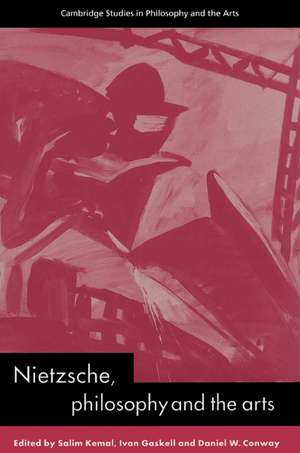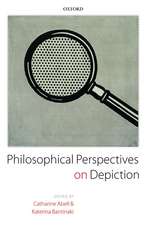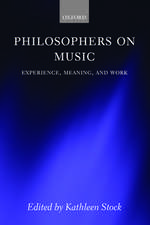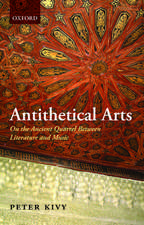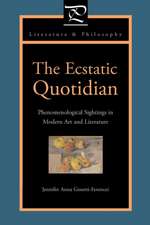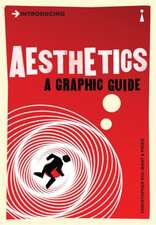Nietzsche, Philosophy and the Arts: Cambridge Studies in Philosophy and the Arts
Editat de Salim Kemal, Ivan Gaskell, Daniel W. Conwayen Limba Engleză Paperback – 7 aug 2002
Preț: 399.08 lei
Nou
Puncte Express: 599
Preț estimativ în valută:
76.37€ • 81.66$ • 63.67£
76.37€ • 81.66$ • 63.67£
Carte tipărită la comandă
Livrare economică 18 aprilie-02 mai
Preluare comenzi: 021 569.72.76
Specificații
ISBN-13: 9780521522724
ISBN-10: 0521522722
Pagini: 368
Ilustrații: 6 b/w illus.
Dimensiuni: 155 x 229 x 24 mm
Greutate: 0.56 kg
Editura: Cambridge University Press
Colecția Cambridge University Press
Seria Cambridge Studies in Philosophy and the Arts
Locul publicării:Cambridge, United Kingdom
ISBN-10: 0521522722
Pagini: 368
Ilustrații: 6 b/w illus.
Dimensiuni: 155 x 229 x 24 mm
Greutate: 0.56 kg
Editura: Cambridge University Press
Colecția Cambridge University Press
Seria Cambridge Studies in Philosophy and the Arts
Locul publicării:Cambridge, United Kingdom
Cuprins
Introduction: Nietzsche and art Salim Kemal, Ivan Gaskell and Daniel W. Conway; 1. Nietzsche's conception of irony Ernst Behler; 2. The transfiguration of intoxication: Nietzsche, Schopenhauer, and Dionysus Martha Nussbaum; 3. Nietzschean self-transformation and the transformation of the Dionysian Adrian Del Caro; 4. Socratism and the question of aesthetic justification Randall Havas; 5. What is the meaning of Aesthetic ideals? Aaron Ridley; 6. The splitting of historical consciousness Stephen Bann; 7. Gustav Klimt's Beethoven Frieze, truth, and The Birth of Tragedy Timothy W. Hiles; 8. Improvisations, on Nietzsche/on jazz John Carvalho; 9. Unstable identities: Nietzsche on the force of art and language Fiona Jenkins; 10. Dionysus lost and found: literary genres in Nietzsche and Lukács Henry Staten; 11. Nietzsche's politics of aesthetic genius Salim Kemal; 12. Love's labour's lost: the philosopher's Versucherkunst Daniel W. Conway; 13. Nietzsche's Dionysian arts: dance, song, and silence Claudia Crawford.
Recenzii
"Emphasizing the various senses of experiment, temptation, and seduction wrapped up in this German word, Conway sees Nietzche as a thinker of eros, concerned to articulate the possibility of exceptional figures--philosophers, artists,, or saints--who are strong enough to squander their strength and resources in legislating (literally or metaphorically) for the rest of us...Conway's reading should actually help in giving a fresh analysis of these themes that shows how they can be made intelligible without implicating them in such disasters." - Gary Shapiro, University of Richmond
Descriere
This collection of essays examines Nietzsche's aesthetic account of the origins and ends of philosophy.
